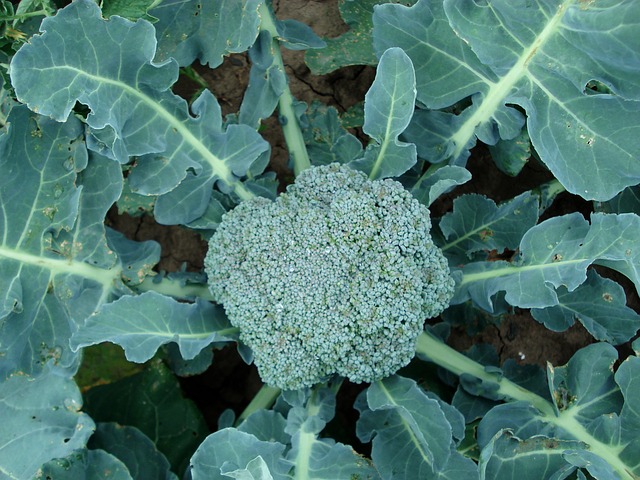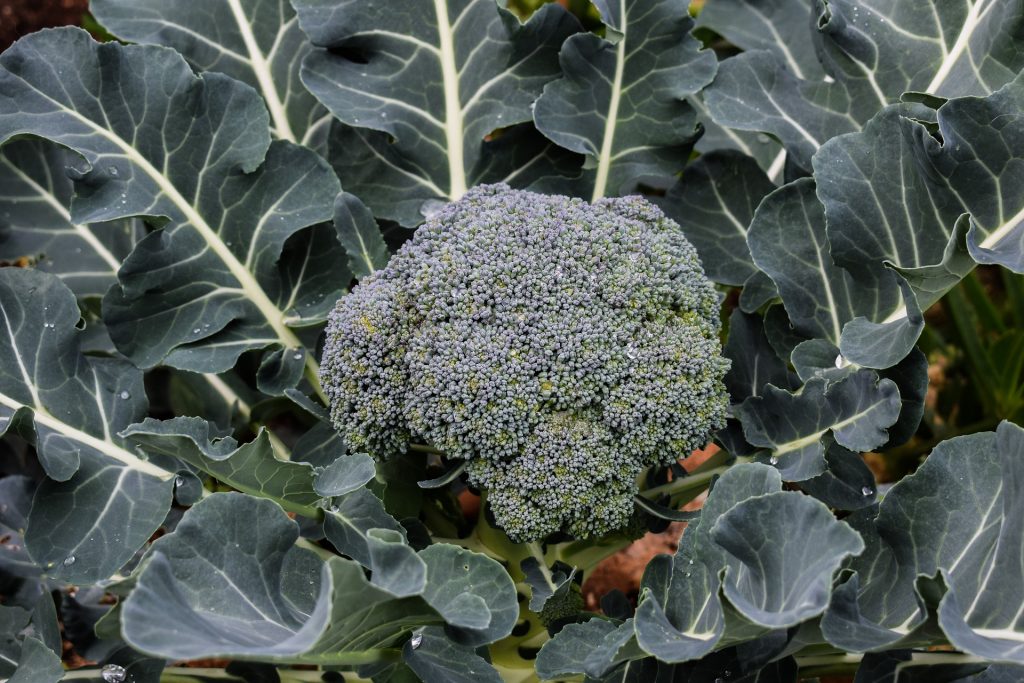Well, broccoli is a cool-season crop, which means it grows best in temperatures between 60 and 65°F. It also requires a minimum of 6 hours of sunlight per day to grow and develop properly. However, broccoli can tolerate up to 8-12 hours of sunlight per day, so if you have a sunny location with plenty of sunlight, your broccoli plants will be happy and thrive well.
Broccoli is a healthy and tasty vegetable that is enjoyed by people all around the world. It’s packed with vitamins and minerals, and it’s a great source of fibre and protein. But like all plants, broccoli needs certain conditions to grow and thrive. One of the most important factors for the growth of broccoli is sunlight.
So, if you want your broccoli plants to reach their full, leafy glory, it’s vital to give them the right amount of sunlight. But how much is the right amount? Here you will know the exact information in detail.
Importance of Sunlight for the Growth and Development of Plants

Sunlight is an essential element for the growth and development of all plants, including broccoli. Sunlight is important for the synthesis of other vital plant compounds, such as chlorophyll, which gives plants their green colour and helps absorb sunlight for photosynthesis.
In addition, sunlight helps plants grow taller and stronger. Without sufficient sunlight, plants can’t produce the energy they need to grow and develop properly. They may become stunted, with small, pale leaves and a lack of flowering or fruiting. In severe cases, plants may die if they don’t receive enough sunlight.
How Much Sunlight Does Broccoli Need?
As already mentioned above, broccoli needs a minimum of 6 hours of sunlight per day to thrive well. It thrives nicely in temperatures between 60 and 65°F. Also, can tolerate up to 8-12 hours of sunlight per day.
Moreover, there are several factors that can influence the amount of sunlight broccoli needs. For example, the type of soil, the climate, and the age of the plant can all affect the amount of sunlight that broccoli needs.
In general, broccoli grows best in well-draining soil with a pH level between 6.0 and 7.0. It also prefers a sunny location with plenty of light, but it can tolerate partial shade as well.
Check this out: How Often to Water Broccoli?
Can Broccoli Tolerate High temperatures?
As a cool-season crop, broccoli is best suited for growth in temperatures between 60 and 65°F. At these temperatures, broccoli can grow and develop properly, producing healthy, flavorful florets. However, broccoli is also fairly tolerant of cool temperatures and can withstand temperatures down to 20°F if properly acclimated.
But what about high temperatures? Well, like most plants, broccoli can be affected by high temperatures, especially if they are prolonged. High temperatures can cause a number of problems for broccoli, including:
- Reduced growth: High temperatures can cause broccoli plants to stop growing or grow more slowly.
- Poor quality: High temperatures can lead to smaller, less flavorful florets.
- Heat stress: Prolonged exposure to high temperatures can cause heat stress in broccoli plants, leading to wilting and yellowing leaves.
Therefore, it’s vital to keep an eye on the temperature and ensure that your broccoli plants aren’t exposed to prolonged periods of high heat. If you live in a hot climate, you may need to provide some shade or water your plants more frequently to help them stay cool and hydrated.
The Best Location For Growing Broccoli Plant
When it comes to growing broccoli, choosing the right location is the key. Picking the right location for your broccoli plant can make a big difference in their growth and development. Here are some points to consider when selecting the best location for growing broccoli.
- Sunlight: As mentioned earlier, broccoli needs a minimum of 6 hours of sunlight per day to grow and develop properly. Look for a location that gets plenty of sunlight, but avoid areas that get too hot or are exposed to strong winds.
- Soil quality: broccoli grows best in well-draining soil with a pH level between 6.0 and 7.0. If your soil is too sandy or too clayey, you may need to add compost to improve its quality.
- Temperature and humidity: As a cool-season crop, broccoli grows best in temperatures between 60 and 65°F. It can tolerate cool temperatures, but prolonged exposure to high heat can cause problems, as mentioned above. In addition, broccoli prefers a location with moderate humidity levels. Too much moisture can lead to fungal infections, while too little can cause the plants to dry out.
- Pest and disease control: Choose a location that is free from pests and diseases, as these can be harmful to your broccoli plants. Consider planting your broccoli near plants that can help deter pests, such as marigolds or basil.
Check this out: Growing the Microgreen Broccoli
How Often Should you Water your Broccoli Plants?
Water is an essential element for the growth and development of broccoli, as it helps plants absorb nutrients and maintain proper growth. However, it’s important not to over-water broccoli plants, as excess moisture can lead to fungal infections and other problems.
The frequency of watering the plant depends on several aspects, including the age of the plants, the type of soil, and the weather conditions. Here are some factors for watering broccoli plants.
- Water your broccoli plants regularly – During the first few weeks of growth, broccoli plants will need regular watering to help them establish strong roots. Water the plants deeply once or twice a week while taking care of the soil moisture.
- Monitor soil moisture – The best way to determine when to water your broccoli plants is to monitor the soil moisture. Stick your finger about an inch into the soil to check the moisture level. If the soil is dry, it’s time to water. If the soil is moist, hold on watering until it requires.
- Use mulch to retain moisture – Applying a layer of mulch around your broccoli plants can help retain moisture in the soil and reduce the need for frequent watering. Just be sure to leave a few inches of space between the mulch and the base of the plants to prevent moisture from accumulating around the stems.
Fertilizing Broccoli Plant
Fertilizers help broccoli plants to grow and develop to their full potential. By providing plants with the nutrients they need, fertilizers can help improve soil quality and promote healthy growth. But how do you fertilize broccoli plants? Here are some points to follow –
- Select the correct fertilizer – There are numerous kinds of fertilizers available, and it’s vital to choose one that is suitable for broccoli plants. Look for a balanced fertilizer with a ratio of roughly equal parts nitrogen, phosphorus, and potassium (NPK). That will provide your broccoli plants with the nutrients they need for healthy growth.
- Apply fertilizers at the right time – The best time to fertilize broccoli plants is during the active growing season, typically from early spring to mid-summer. Avoid fertilizing during the heat of summer, as high temperatures can cause the fertilizer to break down more quickly and may burn the plants.
- Follow the application instructions – Be careful while following the application instructions on the fertilizer label. Over-fertilizing can lead to excess foliage growth at the expense of floret development, and can also kill your plant.
Also Read: Why Are My Potatoes So Small?
Common Problems with Broccoli Plant
Like all plants, broccoli can be prone to a variety of problems that can affect its growth and development. Some of the most common problems that can affect broccoli plants include-
- Pests: Pests such as aphids, cabbage worms, and cutworms can be a problem for broccoli plants. These pests can feed on the foliage and stems, causing damage and reducing the yield.
- Diseases: Broccoli plants can also be affected by a variety of diseases, including clubroot, blackleg, and downy mildew. These diseases can cause wilting, yellowing leaves, and reduced yield.
- Nutrient deficiencies: Broccoli plants can suffer from nutrient deficiencies if the soil is not properly fertilized. Common nutrient deficiencies include nitrogen, phosphorus, and potassium.
- Poor soil quality: Poor soil quality can also be a problem for broccoli plants. If the soil is too sandy or too clayey, it can affect the plant’s ability to absorb water and nutrients.
- Poor drainage: Excess moisture in the soil can lead to fungal infections and other problems for broccoli plants. Poor drainage can also cause the roots to rot, leading to reduced growth.
Also read: What Does Blight Look Like On Cucumber?
Conclusion
Sunlight is an essential element for the growth and development of broccoli. To ensure that your broccoli plants grow and develop properly, it’s important to provide them with the right amount of sunlight. As a cool-season crop, broccoli needs a minimum of 6 hours of sunlight per day but can tolerate up to 8-12 hours of sunlight per day.
However, prolonged exposure to high heat can cause problems for broccoli plants, such as reduced growth and poor quality. By providing your broccoli plants with the right amount of sunlight and protecting them from extreme heat, you can help them grow and develop to their full potential.

